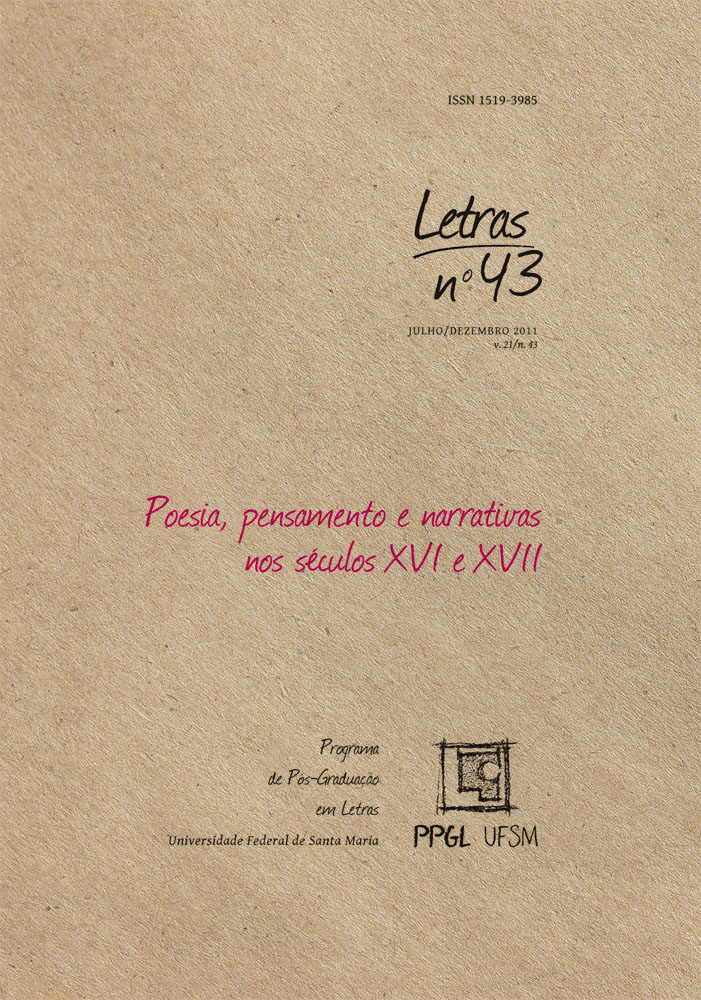Bilingual Milan: the Jesuit Tommaso Ceva (1648-1737)
DOI:
https://doi.org/10.5902/217614856897Keywords:
Tommaso Ceva. Bilingualism. Early Modern Culture.Abstract
The works of the Milanese Jesuit Tommaso Ceva (1648-1737) present a singular balance between different instances: the defense of the ancient and the curiosity for the new, trust in scientific progress and fidelity to the religious tradition, imitation of the classical models and fantastic reinvention, veneration for the Latin language and a quest for a live language, defense of the centrality of the Church of Rome and openness to the ‘new worlds’. These are real ‘bilingualisms’, a category that seems appropriate to describe the religious and cultural environment of Milan in the period of the “crisis of European consciousness”, rich in diffusions and contaminations. Thus this article aims at analyzing four ‘bilingualisms’ one can find in Ceva’s works: a cultural, a poetic, a linguistic and a theological bilingualism.Downloads
Download data is not yet available.
Downloads
Published
2011-12-05
How to Cite
Colombo, E. (2011). Bilingual Milan: the Jesuit Tommaso Ceva (1648-1737). Letras, 21(43), 85–107. https://doi.org/10.5902/217614856897
Issue
Section
Articles







